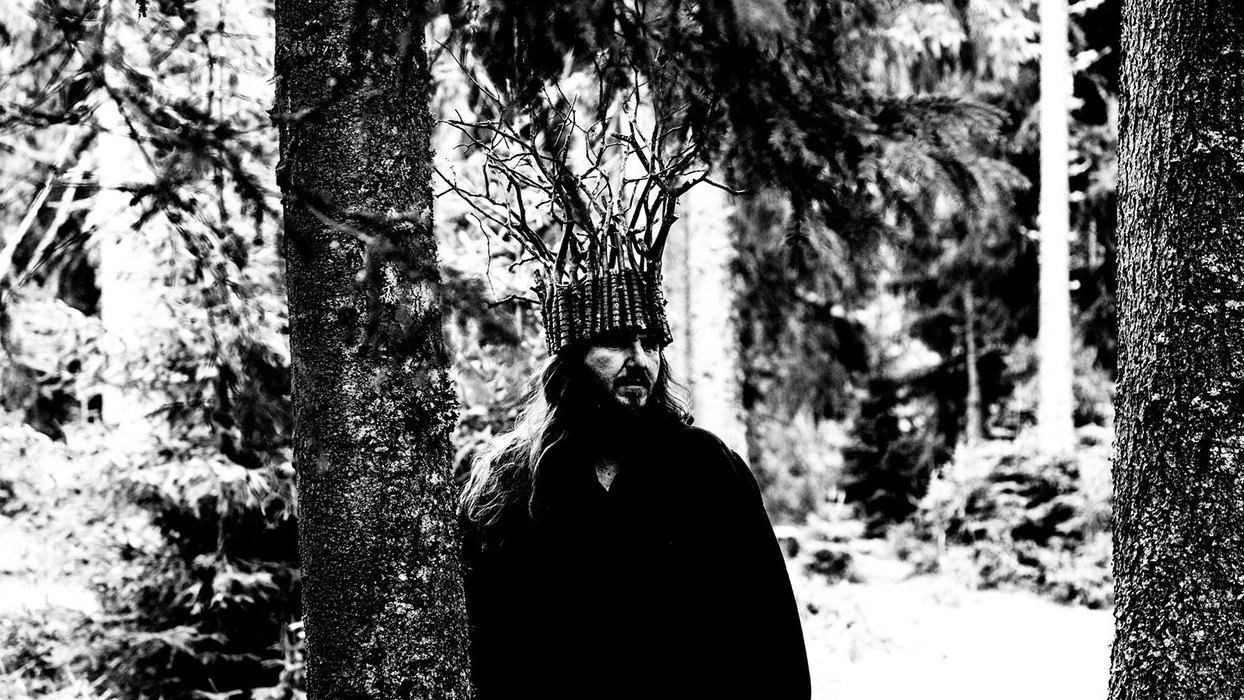Creators of one of the 21st century’s landmark black metal opuses – 2006’s spinetingling, game-changing Om – Negura Bunget have, over the course of two decades, taken the tantalising concept of Transylvanian black metal into far-flung, immersive realms that combine deep tradition with some of the most progressive leaps ever witnessed within the scene.
Now the Timișoara-based band are embarking on their most ambitious project yet: an album trilogy that is, according to band founder and drummer Negru: a personal vision of what Transylvania means. Where the first part, last year’s Tau opus, focused on the landscape, and the various lores that were spun around its most mystical locations, the forthcoming second part, Zi, takes local customs as its theme, once again blending traditional instrumentation with cinematic soundscapes and wild sonic leaps, all built around an organic core.
Released on September 30 via Prophecy Productions, Zi is another marker point for a band that’s constantly evolving, and we’re proud to offer an exclusive introduction in the spectacular form of a 10-minute movie. Beautifully shot in the Transylvanian forests and blending excerpts from each of the album’s six tracks, it’s a journey for Negura adepts and newcomers alike.
Not only that, for more intrepid seekers of knowledge, we also have in interview with Negru below, offering more insight into an album infused with both the ethereal and the authentic spirit of their native Transylvania.
This second part of the trilogy deals with Transylvanian customs – did you find they are more specific than the fabled around the landscape that Tau dealt with? How did the subject matter affect the direction Zi has taken?
“Well, for Tau I thought there are so many amazing natural places around here that’d be hard to choose and focus on just a few, but for this second part it was all even more difficult. Not only is there a vast array of different practices and beliefs, but the ones we find fascinating cut both ways; they’re very specific and at the same time they connect into a much larger philosophical way of understanding and living life. In all this we are somehow caught in the middle, we are not traditional people living a simple life, but at the same time we are not philosophers coming into this form a higher place. We are just fascinated by different pieces from both these worlds, with the ultimate goal to unite them within our own lives.”
Musically, Zi is one of your most diverse albums. Does that reflect the diversity of Transylvanian customs, and is there an overall theme that these customs share?
“The overall theme on which all the practices evolve is the local tradition. All rituals, practices and ceremonials are done in the traditional mindframe for the wellbeing of the community. Everything has a meaning and purpose, every potential problem has a solution, and there are always lots of ceremonial preparations done in the advance of any meaningful activity. Either it’s a ceremonial ritual, like birth, marriage or death, or an economical one, like work of the lands and growing animals. It’s a fascinating world, in which people know their place, their purpose and everything is connected: man, nature, universe.”
Negura album titles tend to have many different layers of meaning – was that the case with Zi and can you give some insight into what the title represents?
“Well, sure. For once we imagined the three parts of the trilogy symbolised by three different concepts. It was THOUGHT for the first part, WORD for the second, and ACTION for the final one. Not only out of the three this is the more human one, but Zi also means ‘say’. It doesn’t mean only that, it also means ‘day’. Somehow this double meaning influenced deeply the development of the album, turning it in the end in the most luminescent one we did so far. So all these different meanings work both ways, we try to find the right ones, and then once we do that, they influence us in all kinds of subtle ways.”
What is the local custom that most resonated with you and how did you go about translating that into a song?
“I think for me would be the funeral ceremonies complex we explored in the first song of the album, Tul-ni-că-rînd (Horn-ing). The very instrument itself (Tulnic = horn) is deeply connected with those rituals and the abundance of practices and meanings we had to deal with allowed us to create some very personal twists on everything. The song explores symbolically relations within the communities, relations between different worlds, different places, both natural and spiritual, the relation with the nature. One of my favourite mindsets of the local traditional community is the analogy – one member of the community with one fir tree; they’re connected symbolically at birth, celebrated at different life passage moments and not even death breaks the circle. It goes beyond at a symbolic level by planting a fir tree in the cemetery, connecting this world and the next one. The funeral ceremonies can be also seen in the larger context of the ancestor celebration, every little detail had a meaning and a connection when put in the right place, that’s why we played with the songtitle, which can mean both just horning, but also also horning playing the right thing, on the right place, on the right moment.
There are quite a few new musical directions on Zi, from the more bawdy moments of Gradina Stelelor to the final track, which is quite a departure (and very beautiful too) Did you surprise yourself musically with this album?
“I must confess that the beginning part form Gradina Stelelor is one of favourite parts not only from this album, but among everything we did. The last track of the album is actually one we did in cooperation with our friends from Thy Veils, so it’s no wonder it’s a bit different. It also somehow marks the transition to the final part of the trilogy, which should be the most conceptual and atmospheric one. Although we had some ideas and even some parts when we started working on Zi, there was really no certain expectation on how it should sound in the end… we just went with the flow, with the album concept and in the end it did came out a bit surprising even for us. But it was the cool kind of surprise, so no problem at all.”
Enter the sacred ground that is Negura Bunget’s Facebook page here
And pre-order Zi in all its customary glory here!

